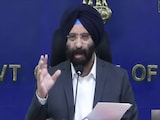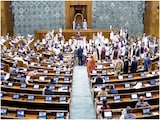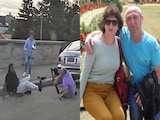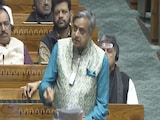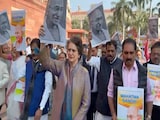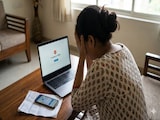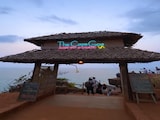Hong Kong publishers have been told to remove "sensitive" content from secondary school textbooks, local media reported Thursday, in the latest move to tighten the city's academic freedoms after the passage of a draconian new security law.
Discussions on civil disobedience, photos of certain protest slogans and even the names of some political parties have been excised from books used to teach critical thinking to the city's teenagers.
Hong Kong's Beijing-appointed government said the edits were required "with a view to sieving out the inaccurate parts from the past".
The censorship is the latest move in a quickening campaign to eliminate dissent in the free-wheeling city, which was rocked by months of sometimes violent protests demanding democratic reform and police accountability.
Education has been a key target of Beijing's ire, with pro-establishment politicians lashing out at a perceived fifth column within the city's schools that they say offers succour to protesters.
Liberal studies, a secondary school class that teaches critical thinking, has become a bete noire for China and pro-Beijing politicians in Hong Kong who have called for more openly patriotic education.
Hong Kong Professional Teachers' Union (HKPTU) said the city's Education Bureau, whose consultancy service demanded the changes, was guilty of political censorship.
"It waters down or even distorts reality in society," HKPTU said, calling for authorities to guarantee academic freedom in the territory.
Under a 50-year deal struck between Britain and China ahead of the 1997 handover of Hong Kong, Beijing agreed to let the city keep certain liberties -- such as free speech -- that are unseen on the mainland.
But the swingeing national security law, which came into force at the end of June, effectively outlawed certain opinions overnight, threatening long jail terms for transgressors.
The law, whose contents were kept secret from Hong Kongers until it was imposed on them by Beijing, has already prompted schools and libraries to pull some books.
Hong Kong's government said the edits would help students "develop positive values". It denied any political censorship.
(This story has not been edited by NDTV staff and is auto-generated from a syndicated feed.)

